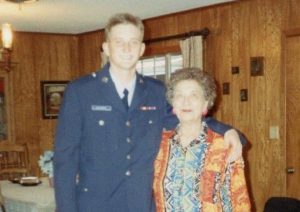Supporting Cancer Survivors Who Use Tobacco
Posted on byBy Shayne Gallaway, PhD, MPH

My grandmother died of lung cancer after a seven-year battle. She fought like a champ, without ever so much as a complaint. She was like a second mother, and one of my favorite people in the world. I still cry when I think about the day we lost her. Cancer doesn’t discriminate. In our lifetime, it’s almost guaranteed that we will all know a family member or friend diagnosed with cancer.
It should come as no surprise that one of the most common risk factors for cancer is smoking. Smoking has been causally linked not just to lung cancer but to a total of 12 different types of cancers. People who smoke at the time they are diagnosed with cancer should quit; continued smoking after a cancer diagnosis is associated with serious adverse health outcomes, including a higher risk of death, negative effects on cancer treatment, and increased risk of another cancer.
If only it was that easy. Smoking is highly addictive, and quitting is hard. I’m a former smoker, and I’ve quit three times, the most recent for good about 15 years ago. There are several effective treatments to assist with quitting, including counseling and medication. When those two are used together, they can be more effective than using either alone. Quitting smoking after a cancer diagnosis can improve a patient’s prognosis and increase long-term survival.
We recently examined smoking attitudes and practices of cancer survivors because little was previously known about specific smoking cessation behaviors. In the study of cancer survivors, we found that almost half of them were either current smokers or former smokers. Compared to former and never smokers, current smokers were younger, less educated, and less likely to be insured. Many of the current smokers said they wanted to quit or had attempted to quit within the past year. However, only a small number of them said they used smoking cessation counseling or medication—not to mention both—to help them quit.
Even after a cancer diagnosis, about 1 in 8 cancer survivors who smoked continued to do so, perhaps because not all cancer survivors may be aware of how continued smoking after a cancer diagnosis negatively impacts their health. In the study, about a third of the smokers had received no advice to quit smoking from a health professional. Health professionals can consistently advise cancer survivors about the increased risks associated with continued smoking, provide them with cessation counseling and medications, refer them to other, often free cessation resources, and inform them of cessation treatments covered by their health insurance.
Every day that I come to work in CDC’s Division of Cancer Prevention and Control, I think about how my work relates to my grandmother and to everyone else’s loved ones. I work every day to identify and translate information that can help prevent cancers, ensure that all persons with cancer or at risk for cancer get the right care at the right time, and increase the quality of life among cancer survivors.
Learn more about how health care providers can care for cancer survivors who use tobacco.


Post a Comment